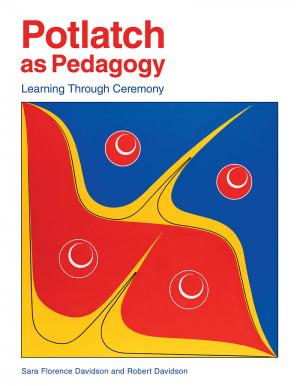
Potlatch as Pedagogy: Learning Through Ceremony
In Haida culture, the potlatch tradition determined social structure, redistributed wealth and transmitted cultural knowledge. In 1884 the Canadian government banned the practice of the potlatch to undermine and assimilate Haida culture. Despite the ban, Haida elders had, through acts of subversion, retained the ancestral knowledge and wisdom the potlatch ceremony embodies.
Haida educator and scholar Sara Florence Davidson has written an homage to her father, respected contemporary artist Robert Davidson who is of Haida ancestry. His compelling story reflects the immense respect she has for him, her family, her community and her ancestors in their resistance to colonial power.
The potlatch ban was lifted in 1951. At this time Robert Davidson, longing to revitalize Haida culture and values, sought out ancestral knowledge and insights from family and community members. Through these strong relationships and relearning lost knowledge, he resurrected the potlatch ceremony to fill the cultural void that resulted from years of suppression.
Sara Davidson approached her father to understand how his learning could inform and improve her teaching. He did not provide her with a list of teaching strategies; instead he related stories of his childhood intertwined with traditional Haida narratives. She came to realize it was her responsibility to understand what the stories could teach her and thus transform her learning into pedagogy.
After careful reflection on Robert Davidson’s experience of collectively reclaiming nearly lost traditions, the father/daughter team establish and offer the reader nine Haida principles that serve as the backbone of traditional teaching and learning (sk’ad’a): strong relationships; authentic experiences; curiosity; observation; contribution; recognizing and encouraging strengths; honouring the power of the mind; Indigenous history and stories; and spirituality and protocol.
These nine sk’ad’a principles can serve as the threads to strengthen our teaching practice. The 2015 Truth and Reconciliation Commission recommended that all Canadians comprehend the devastating effects of colonial history and policy. As educators we have a great responsibility to learn and teach Indigenous history and knowledge. But we can also weave Indigenous pedagogy into our everyday teaching practice. As a teacher I wish the authors had provided more concrete examples for use in the classroom, but in spite of this, Potlatch as Pedagogy is an accessible, engaging and heartfelt work.
Adrianna Knight is a member of the Halton Teacher Local.